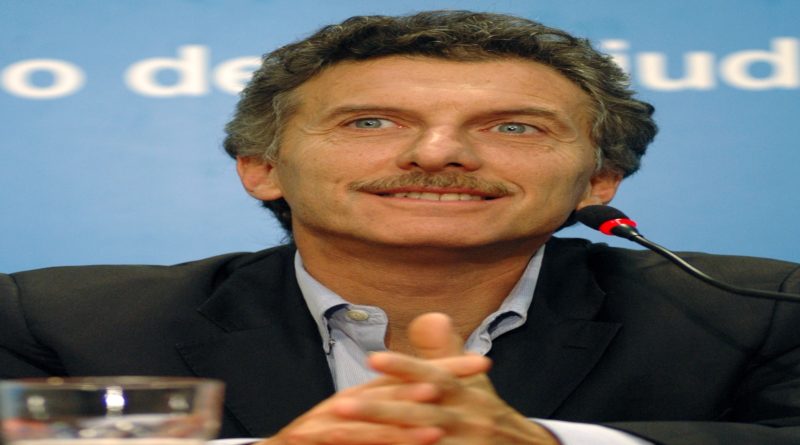Macri’s Hypocrisy
By Jack Memolo, Research Associate at the Council on Hemispheric Affairs
To download a PDF of this article, click here.
A week after the heinous terrorist attack in lower Manhattan, which killed five visiting Argentine tourists, the country’s president Mauricio Macri traveled to New York City to pay his respects to the victims, as well as promote commercial investment in Argentina. Before placing a memorial wreath of white flowers on the spot where an Uzbek citizen struck the five friends with a rented truck, Macri gave a short eulogy for the deceased.
“This must make us defend our conviction of the importance of peace, and our commitment to peace” he said. Macri then addressed the importance of the fight against terrorism, and the need for effective interstate cooperation on the issue. But what was most striking about his short speech was the ending. “We want to be part of this battle (against terrorism) that we all have to face in this world for a peaceful coexistence, with love amongst all of us.”
Certainly we all can identify with this statement. Those who would commit such an act of senseless violence have no place in a society, which respects the beliefs and creeds of all people. Yet no one would have understood this truth more clearly than Santiago Maldonado. While protesting the inhumane treatment of Mapuche Indians in the Patagonia region of Argentina, Maldonado suddenly disappeared. His associates suspected foul play on the part of the Argentine authorities and paramilitary police, with whom Maldonado had allegedly last been seen. Such a disappearance has struck hard at the hearts of many Argentines, especially those who experienced the military dictatorship from 1976 to 1983, which kidnapped and later murdered upwards of 30,000 people.
Over two months after Maldonado had gone missing, on October 17th, his body was found dumped on a riverbank which had already been “searched” three times previously by authorities.
During the nearly 80 days period after Maldonado’s initial disappearance, President Macri was almost completely silent, even refraining from addressing the issue until over a month after Santiago had first been declared missing. Despite recently saying he was doing “everything possible” to help Maldonado’s family resolve the circumstances of his disappearance, Macri has shown little initiative.
While Maldonado disappeared after showing his public support for the rights of the indigenous Mapuche, what ultimately led to his death was love, but not the kind defined by President Macri. Maldonado stood with the Mapuche not because of religion, or race, or ethnicity, but because of a common sense of humanity. Maldonado was a martyr for human solidarity, and a victim of hatred.
If we are to truly live in a society where, as Macri said, there is “love amongst all of us,” then we must demand answers from him and decry the fact that he has shown little action despite his professed concern for Maldonado. In spite of words issued by the Argentine president that day, Macri’s brief record is not reassuring.
Justice will only be achieved once Macri’s actions match his words, which is why Macri’s appearance in New York must be dismissed as an act of hypocrisy. For a nation like Argentina, which has endured the squalor of the “Dirty War” and the disappearance of tens of thousands of innocent citizens, the President must be held accountable for suppression of protest. President Macri must stand, as Santiago Maldonado did, with the most vulnerable amongst us.
By Jack Memolo, Research Associate at the Council on Hemispheric Affairs
Additional editorial support provided by Larry Birns, COHA Director, and Eugenia Rosales Matienzo, Research Associates at the Council on Hemispheric Affairs
Image: Mauricio Macri Taken From: Wikimedia


